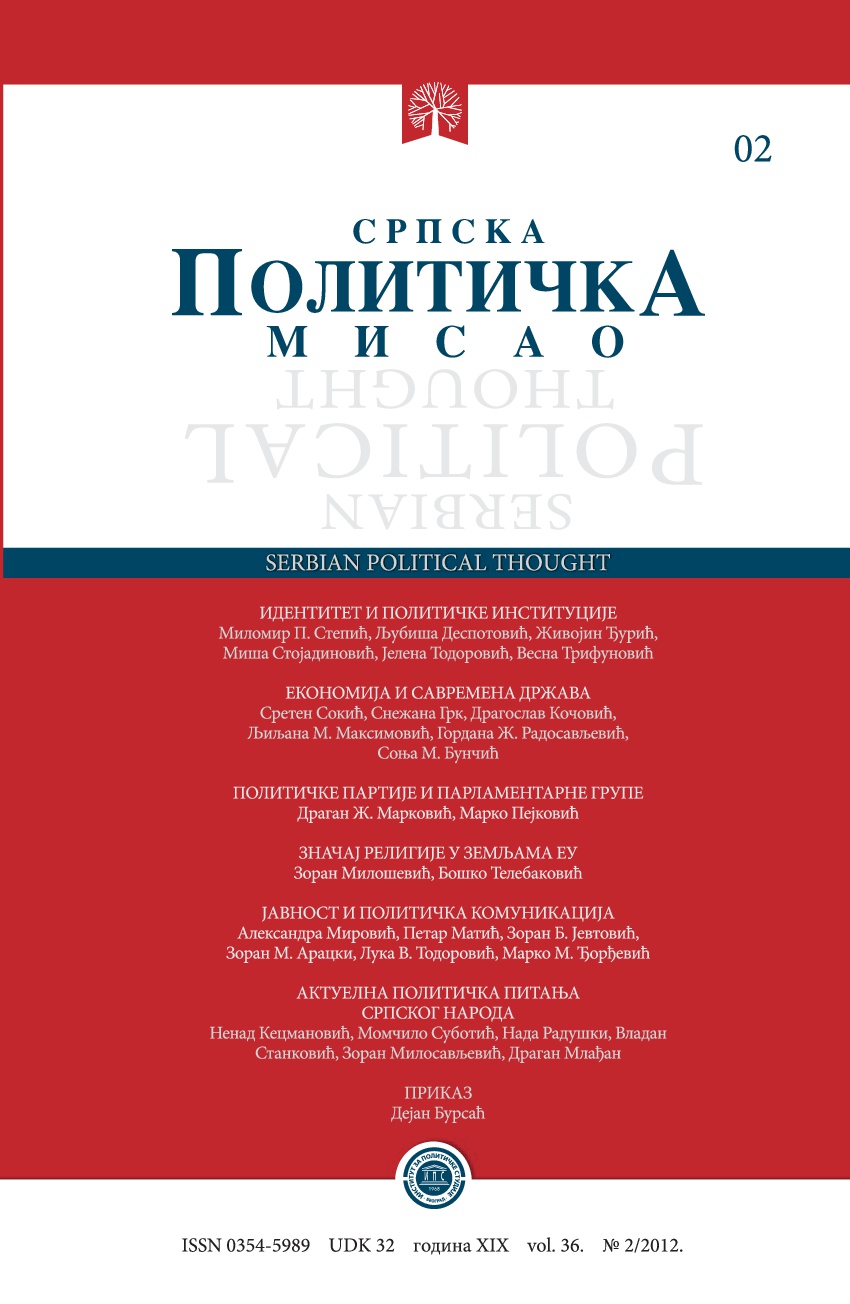Политичке, економске и социјалне последице окупације јужне српске покрајине Косова и Метохије
Political, Economic and Social Consequences of the Occupation of the South Serbian Province Kosovo and Metohija
Author(s): Dragoslav KočovićSubject(s): Constitutional Law, International Law, Social development, Economic development, Inter-Ethnic Relations, EU-Accession / EU-DEvelopment, Ethnic Minorities Studies
Published by: Институт за политичке студије
Keywords: politics; economy; socially; Serbia; usurpation; Kosovo and Metohija;
Summary/Abstract: In this work I am trying to present political, economic and social consequences of the occupation of South Serbian province Kosovo and Metohija. The intention is to show, in time and space, relying on historical and anthropo- sociological methods and using irrefutable arguments that Kosmet is Serbian soil from the earliest beginnings, that the Serbs are autochthonous people there, that the Albanians are immigrants the Serbian state offered shelter to and saved from disaster. Serbia and Serbian people made an effort to integrate the Albanian minority group into complete social development of Serbia, based on inter- ethnic and inter-religious equality respecting all the standards of international and national laws which regulate the issues of ethnic minorities. The conclusion is that no other minority had so many rights as guaranteed to the Albanians by the Serbian Constitution. It was the opportunity to take by force and terror Kosovo and Metohija in the course of disintegration of The Second Yugoslavia. Helped by Nato and the EU, the Albanians usurped 15 percent of Serbian territory and considerable share of economic capacities and objects of social work and services, even private property which is considered to be sacred in civilized world. They are trying to transform the usurpation, helped by the USA and the EU, into an independent and self- governing state, justifying it as alleged majority volition. Analysing the migration of population we show that the Albanian population has never been autochthonous nor prevailing. The state of Serbia, her material and spiritual foundation, cherished and developed in this part of Serbia clearly confirms Kosmet to be legally and customary undisputedly Serbian soil.
Journal: Српска политичка мисао
- Issue Year: 2012
- Issue No: 2
- Page Range: 149-177
- Page Count: 29
- Language: Serbian

